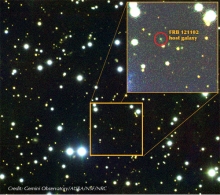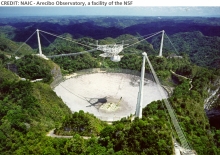Crowdmark – an online grading tool developed especially to handle large classes – has been attracting a growing following across North America, with members of McGill’s own Faculty of Science among its most ardent enthusiasts. Kira Smith, reporter-at-large for the OSE, went undercover to find out more.


McGill University astrophysicist Matt Dobbs is the recipient of the 2019 Killam Research Fellowship in Natural Sciences.
The announcement was made today by the Canada Council for the Arts, which revealed this year's winners of the prestigious Killam Program, composed of the Killam Prizes and the Killam Research Fellowships.

The Large Hadron Collider (LHC) at the European Organization for Nuclear Research (CERN), the most massive and complex science experiment in human history, is a prime example of global achievement through collaboration. Driven by a multinational community of researchers, engineers, and technicians from over 100 countries, the LHC has enabled us to push the boundaries of scientific knowledge.

Cosmologist Jonathan Sievers and international-relations scholar Jennifer Welsh will become Canada 150 Research Chairs at McGill University. The appointments were among the 24 Chairs announced today at the Canadian Museum of History in Gatineau, Quebec, by Minister of Science Kirsty Duncan.

The afterglow from the distant neutron-star merger detected last August has continued to brighten – much to the surprise of astrophysicists studying the aftermath of the massive collision that took place about 138 million light years away and sent gravitational waves rippling through the universe.

Astronomers have pinpointed for the first time the home galaxy of a Fast Radio Burst, moving scientists a step closer to detecting what causes these powerful but fleeting pulses of radio waves. FRBs, which last just a few thousandths of a second, have puzzled astrophysicists since their discovery a decade ago.
A new study published in Nature Communications could help biologists understand how various types of migratory cells, such as immune cells, find their way through tissues in the human body.

By Chris Chipello, McGill Newsroom
Astronomers for the first time detect repeat ‘fast radio bursts’ from same sky location
Astronomers for the first time have detected repeating short bursts of radio waves from an enigmatic source that is likely located well beyond the edge of our Milky Way galaxy. The findings indicate that these “fast radio bursts” come from an extremely powerful object which occasionally produces multiple bursts in under a minute.

By Chris Chipello, McGill Newsroom
McGill researchers Elena Bennett and Yasser Gidi also honoured by NSERC
The Natural Sciences and Engineering Research Council of Canada (NSERC) has named McGill University astrophysicist Vicky Kaspi as this year’s recipient of the Gerhard Herzberg Canada Gold Medal for Science and Engineering, NSERC’s highest honour, in recognition of the excellence and influence of her research contributions.

By Katherine Gombay, McGill Newsroom
New technique offers potential to reconnect neurons of people with central nervous system damage

$1 million donation from Trottier Family Foundation to fund McGill Space Institute fellowships

As scientists continue to hunt for a material that will make it possible to pack more transistors on a chip, new research from McGill University and Université de Montréal adds to evidence that black phosphorus could emerge as a strong candidate.

McGill professor Vicky Kaspi, a world-renowned astrophysicist known for her cutting-edge work on neutron stars and pulsars, was awarded the Killam Prize today, one of the country’s most prestigious awards for academic-career achievement. The $100,000 prize was granted for outstanding scholarship in the natural sciences. Five awards – one each in the categories of the humanities, social sciences, natural sciences, health sciences and engineering -- are distributed every year by the Canada Council for the Arts.
